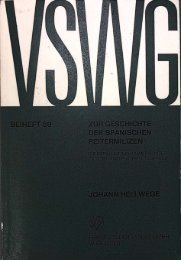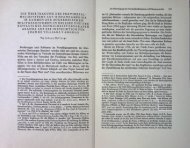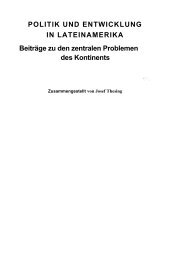9_Law and State_Volume 17
You also want an ePaper? Increase the reach of your titles
YUMPU automatically turns print PDFs into web optimized ePapers that Google loves.
64<br />
Johann Hellwege<br />
!sion between elements of the social process which « is t <strong>and</strong><br />
defined in detail, <strong>and</strong> the definable requirements of the devel-<br />
<strong>State</strong>s. IV IU U C U llL d U U U tjbuvMww —---------- * e . f . J . 31<br />
social science aware of the limitations <strong>and</strong> relativity of its findings .<br />
Some of the reasons why this has happened are: observation of the grea<br />
variety of traditional starting situations, diversity of possible reference<br />
societies for today’s “stragglers”, different historical periods which were<br />
<strong>and</strong> are available for modernization, <strong>and</strong> not least of all the faltering<br />
course <strong>and</strong> frequent breakdowns of the process of modernization.<br />
The normative statements of modernization theories - like all theories<br />
forced to explain the overall process of social change - are being more<br />
<strong>and</strong> more explicitly formulated <strong>and</strong> supported, so that the opponents of<br />
modernization theories are compelled to lay bare their own criteria o<br />
comparison <strong>and</strong> to show how the costs <strong>and</strong> opportunities, sacrifices <strong>and</strong><br />
progress in pursuit of their own normative refuge (which are directed<br />
against modernization theories) are or can be greater or lesser. It is noteworthy<br />
that Europe <strong>and</strong> North America have again found their way mto<br />
the centre of modernization studies, whereas the Third World no longer<br />
represents the central focus of research or enjoys the predominance it did<br />
in the early years of modernization theories. The arrogant-instructing<br />
intentions of the first years have faded away as it became more evident<br />
that, although modernization can be conceived as a systematic process<br />
during which general problems are posed, modernization as a historical<br />
process has produced quite different solutions. The ideological ballast of<br />
the first years has been largely thrown overboard.<br />
Against this background, we may briefly summarize a few advantages<br />
of historical-comparative modernization studies to Latin American social<br />
sciences. Inasmuch as historical modernization theory helps to illuminate<br />
the preconditions <strong>and</strong> consequences of the rise of modern industrial soae-
















